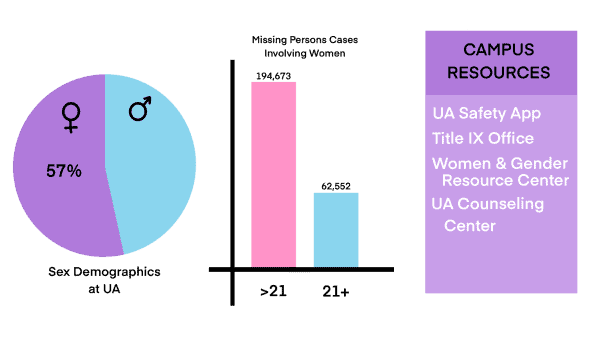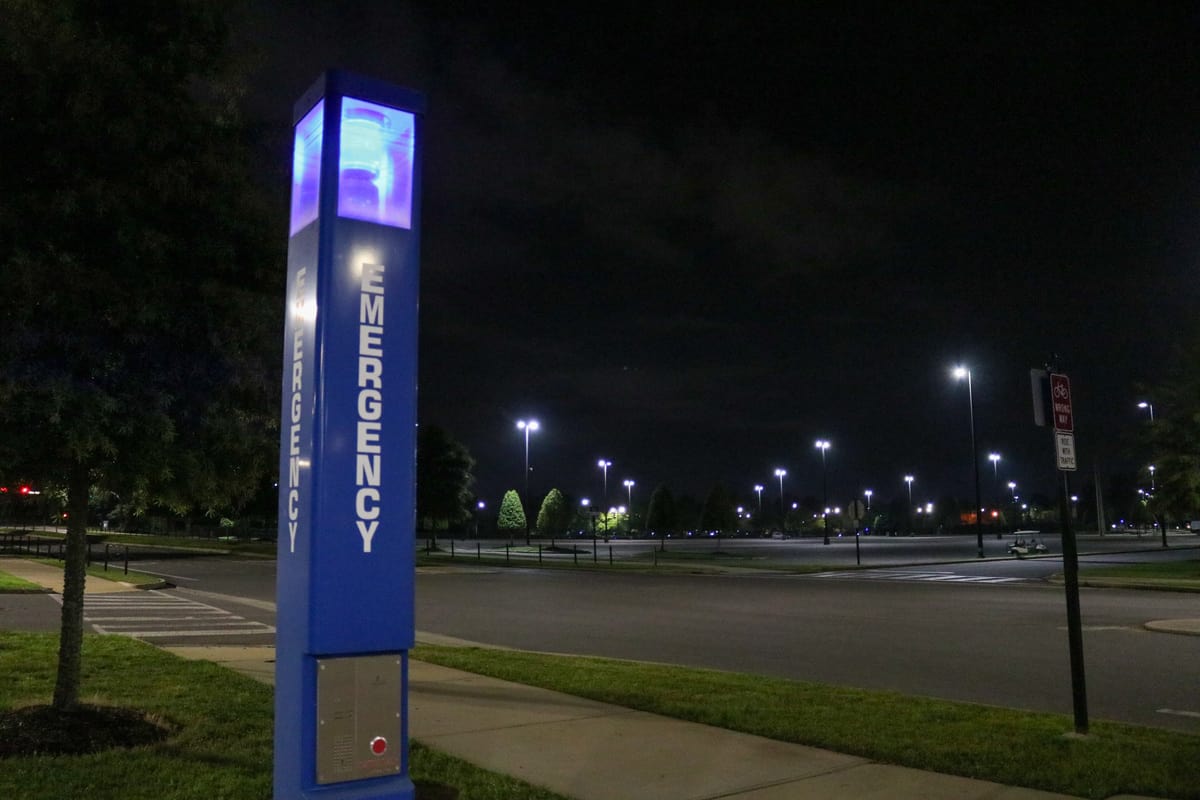Over the past few years, women have increasingly spoken out about experiencing situations where they have felt unsafe, and awareness surrounding the general topic of our protection has risen.
According to the National Crime Victimization Survey, there were about 1.2 million female victims of violent crime in 2021. This includes rape, sexual assault, robbery and assault. To put this already large number in perspective, it does not include the ample amounts of crimes that go unreported each year.
As of 2022, about 57% of UA students are women. The increasing number of women in our student body should make initiatives toward safety abundantly imperative.
We must prioritize believing women, hearing their stories and offering support regarding safety, especially in a college environment where rape culture and victim blaming can heavily exist.
Should this issue be ignored, the ongoing fears and struggles experienced by women will become societally normalized. This normalization would significantly hinder progress toward creating a safe space for women. If we believe that our awareness, resources and support are “good enough,” we risk lack of development, which would leave women vulnerable to a repetitive cycle of harm and injustice.
Creating a conversation regarding this issue has made many realize how often crimes against women happen yearly or even daily. People are sometimes naive in thinking that just because a crime has happened to someone else, it could never happen to them, which is a dangerous mindset to have. This awareness begs the reminder that we must stay informed of our safety resources because crime can happen to any person at any time.
The University of Alabama offers many safety and support resources to students, including the UA Safety App, the Title IX Office, the Women and Gender Resource Center, the Counseling Center, and many more.
There are also more than 200 emergency “Blue Phones” spread across campus in outdoor areas, parking lots and decks. If at any time you feel unsafe while on campus, you can reach the University of Alabama Police Department using an emergency phone.
As we continue the 2023 fall semester, a good rule of thumb is to travel with a friend or group as much as possible, especially at night. It could also be beneficial to share your location with your close friends, family members or roommates for peace of mind or in the event that you are in a high-risk situation.
If you have to go somewhere alone, you should always let someone you trust know the details of where you will be and a time estimate of when you expect to be back.
Women should never feel afraid to prioritize their safety by asking someone to accompany them to their car or alerting others if they feel unsafe in a public setting, as these actions should not be seen as a sign of weakness, but proactive measures to ensure security.
If you live or are on campus and need a ride to somewhere nearby, I suggest using Joyride instead of Uber.
It is no secret that Uber has had its fair share of scandals surrounding safe transportation for women and lone passengers. Joyride is a great, affordable alternative used by college students, which eliminates the stress of finding a safe ride home that is not overpriced.
For more general safety tips and information, I recommend exploring the topic on TikTok and Facebook. These platforms can allow you to hear what other women have experienced and crime tactics to be conscious of. You could also join GroupMe chats or community pages to stay up to date on what is happening in your residing area.
I chose to include tips and resources in this article because they can be somewhat challenging to come across unless you’re actively searching. I also believe it’s crucial to be reminded of these resources to ensure they consistently catch the eye of those who could benefit from them.
Unfortunately, women cannot afford to be overly trusting and must constantly navigate their surroundings with a focus on personal safety, which can be a daily struggle. According to Statista, the National Crime Information Center had 194,673 missing-person cases regarding women under 21 years old, and 62,552 over 21.
For the safety of women on our campus, we must foster a safe environment for all, and that begins with prioritizing prevention over reaction.










